
Hide some information of the class inside the class and do not allow direct access by external programs. Instead, the operations and access to the hidden information are implemented through the methods provided by the classAdvantages: a. Only through regulations Method access number b. Hide the instance details of the class to facilitate modification and implementation
2. Implementation steps: 1) Modify the attribute visibility (set to private) 2) Create a getter/setter method (for attribute reading and writing) 3) Add attribute control statements to the method (to determine the legality of the attribute value) Example: Set the student class: Two attributes 1) name 2) age In the Student class, add age judgment for age. If the age is less than 0 or greater than 150, prompt: Unreasonable dataAdd judgment, the existence that cannot be solved is not Reasonable data;
Use the keyword
private: private ---> cannot be accessed (
Member variables/member methods modified by private can only be accessed in this class, The outside world cannot directly access)
3. Package1) The role of the package: manage JAVA files and resolve file conflicts with the same name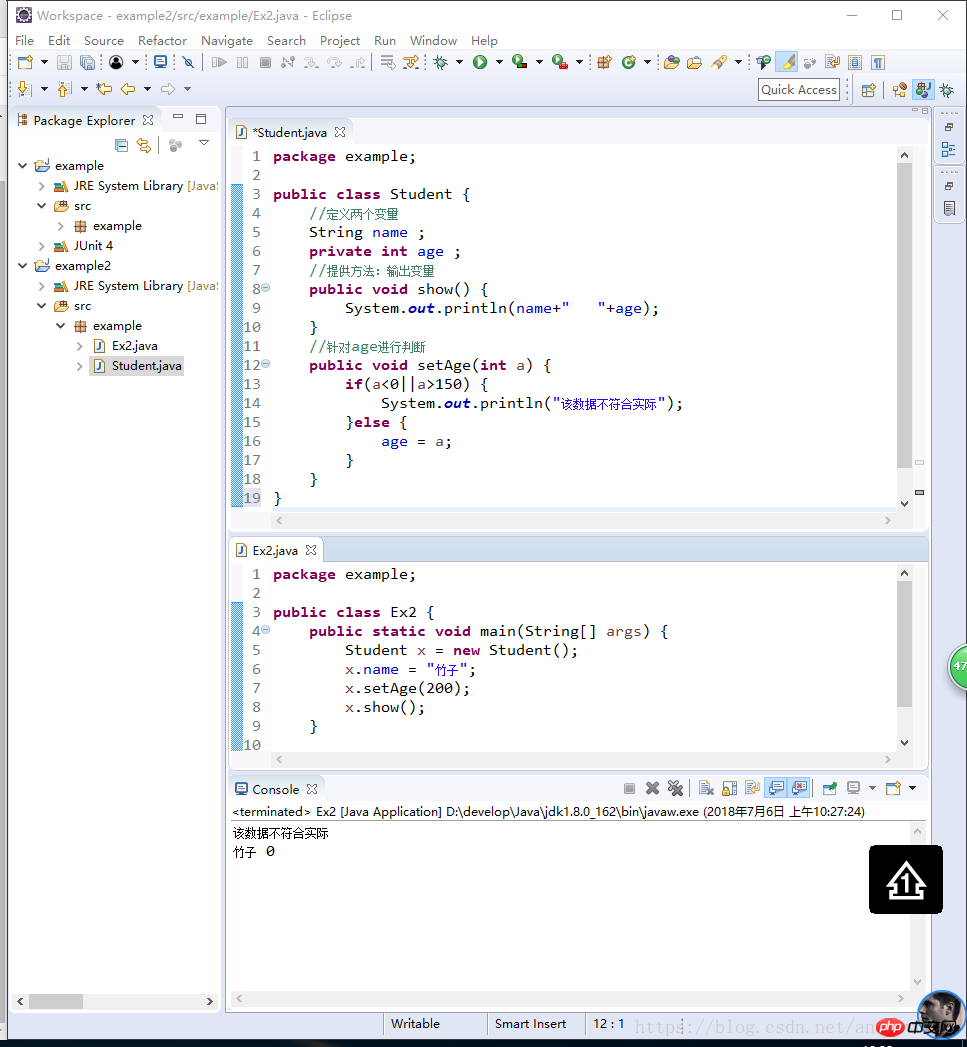 Define package: package package name
Define package: package package name
Note: It must be placed in the first line of the JAVA source program and can be separated by ., such as: com.westos.Class
2) Packages in the system:
java. (Function). (Class)
java.lang. (Class) contains the basic Java language classes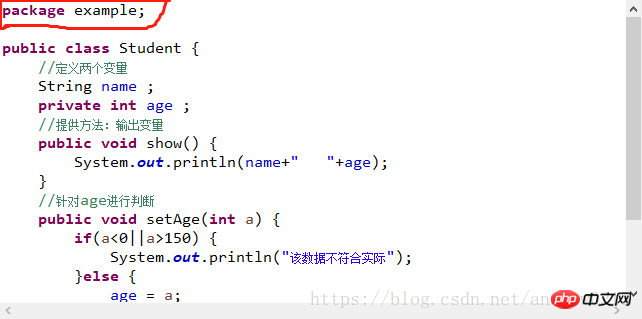
When used, you can load all files under a certain package (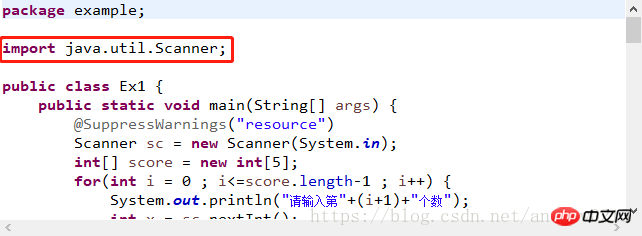 import java.util.*
import java.util.*
import java.util.Scanner)
4. Access modifier: used to modify the access scope of properties and methodsps: Usually we modify methods with public and modify attributes with private
5.this keyword
this.Attribute: Manipulate the properties of the current object
This.Method: Call the method of the current object 2) When encapsulating the properties of an object, the this keyword is often usedps: Generate get and set methods
Source--->Generate Getters and Setters
## At this time we found that our attribute names and parameter names were repeated. In order to distinguish them, we added the this keyword, which means assigning the value of the parameter to the current attribute. The value of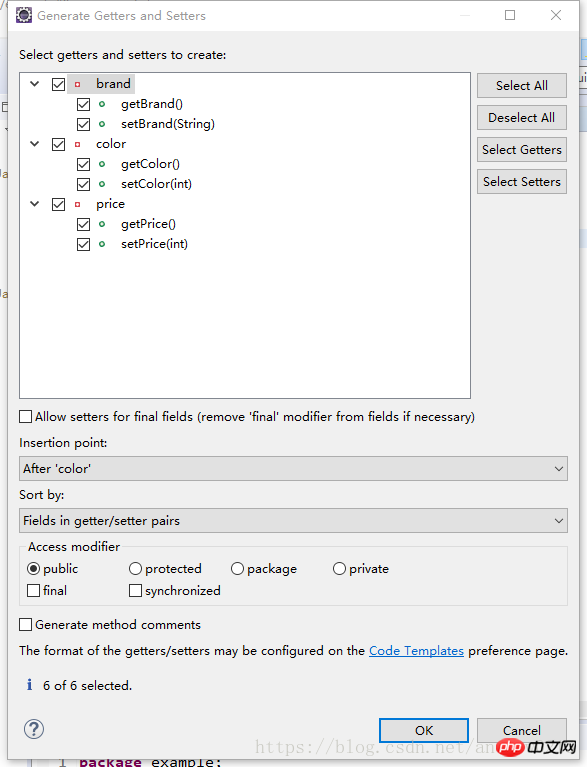 This keyword can not only be used with attributes, but also can be used if we want to call a method in a set method
This keyword can not only be used with attributes, but also can be used if we want to call a method in a set method
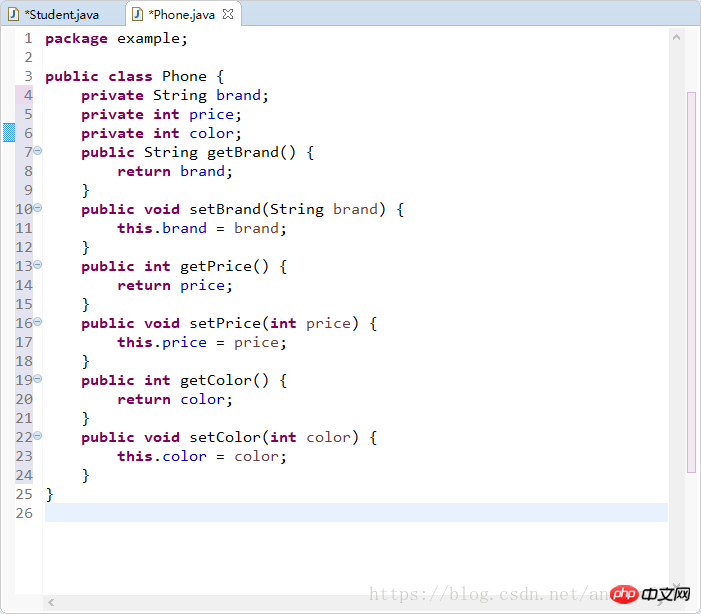
Example: Based on the previous example, the output result is
1. Mobile phone class
package example; public class Phone { private String brand; private int price; private String color; public void sendMessage() { System.out.println("you can message to Andrew"); } public String getBrand() { return brand; } public void setBrand(String brand) { this.brand = brand; this.sendMessage(); } public int getPrice() { return price; } public void setPrice(int price) { this.price = price; } public String getColor() { return color; } public void setColor(String color) { this.color = color; } public void show(String name) { System.out.println(name+" use the iphone to call Andrew"); } }
2. Student class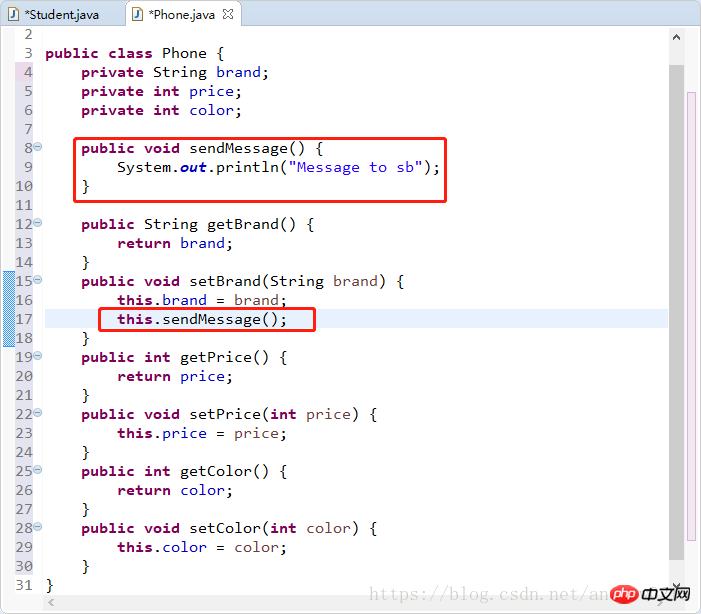
package example; public class Student { //定义两个变量 String name ; String gender; private int age ; //提供方法:输出变量 public void show() { System.out.println(name+" "+age+" "+gender); } public String getName() { return name; } public void setName(String name) { this.name = name; } public int getAge() { return age; } public String getGender() { return gender; } public void setGender(String gender) { this.gender = gender; } //针对age进行判断 public void setAge(int a) { if(a<0||a>150) { System.out.println("该数据不符合实际"); }else { age = a; } } }
3. Call
package example; public class Ex2 { public static void main(String[] args) { Student x = new Student(); Phone i = new Phone(); x.setAge(24); x.setName("Silvia"); x.setGender("Lady"); x.show(); i.setBrand("Apple"); i.setColor("玫瑰金"); i.setPrice(6999); i.show(x.name); } }
JAVA Getting Started System Tutorial (4) Basic Grammar (2)
JAVA Getting Started System Tutorial (5) Basic Syntax (3)
The above is the detailed content of JAVA introductory system tutorial (6) Object-oriented (encapsulation). For more information, please follow other related articles on the PHP Chinese website!




